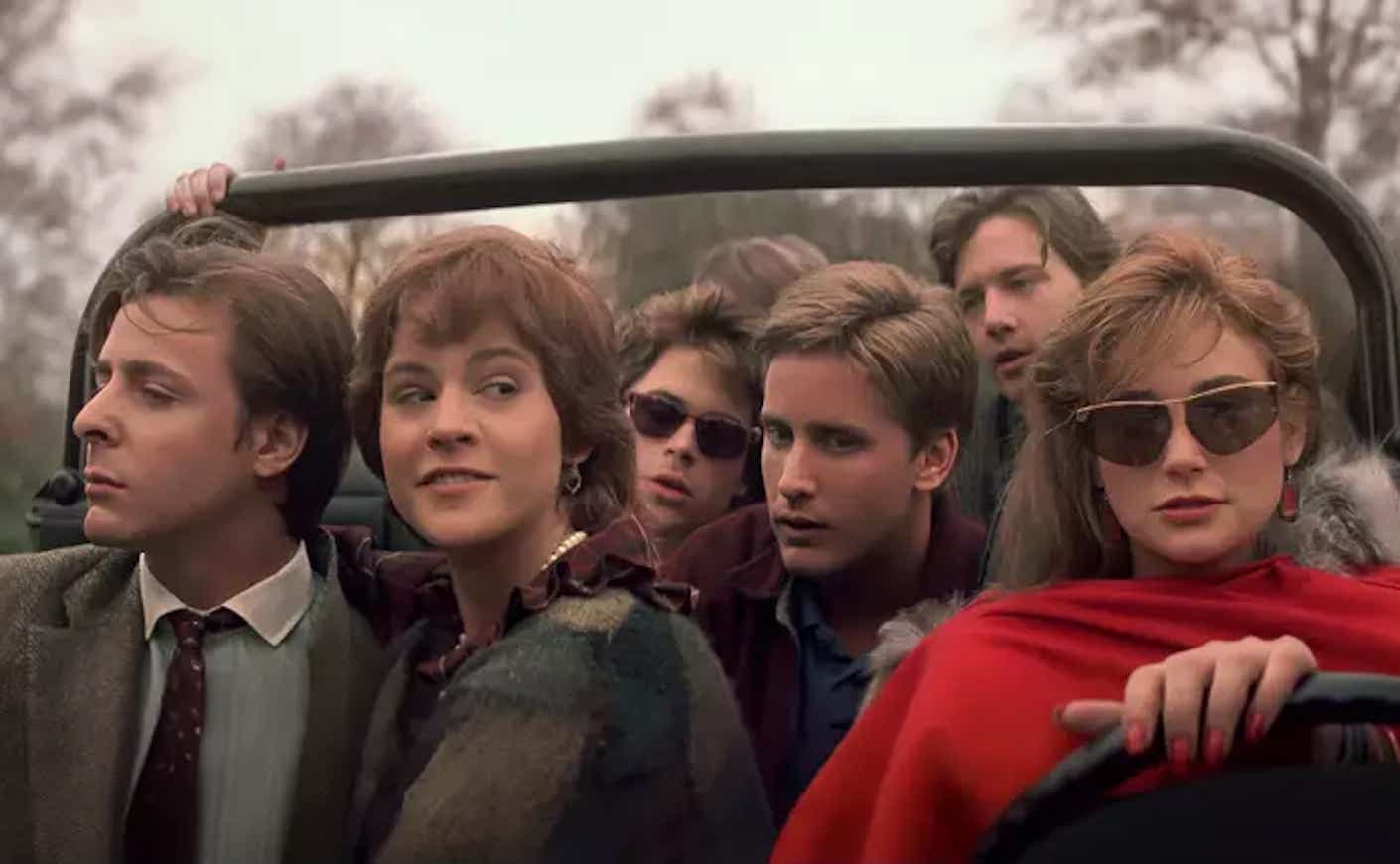Almost 40 years ago, New York Magazine ran a feature about a coterie of young actors who had overrun Hollywood. That piece was responsible for vaulting the “Brat Pack” into the lexicon and profoundly affecting the fate of the stars branded by it.
At least, that’s how Andrew McCarthy sees it.
McCarthy, best known for his roles in films like Pretty in Pink and St. Elmo’s Fire, has spent years grappling with the “Brat Pack” legacy, how it may have altered the course of his career and the public’s perception of him as an artist. He does some soul-searching on the topic in his 2021 memoir (Brat) but was left wanting more. So he sought out his peers to see if they'd felt negatively impacted by that label, too. In his new documentary, Brats, he speaks to Rob Lowe, Emilio Estevez, Demi Moore, and other famous “brats.”
We spoke to McCarthy about the film, what it was like to catch up with Ally Sheedy and other 80s icons he hadn’t spoken to in decades, why Judd Nelson doesn’t make an appearance, and much more.
Katie Couric Media: Throughout the film, you mention that you really struggled with being identified as part of the brat pack. Why was that hard for you?
Andrew McCarthy: The article that coined that phrase was very pejorative. It was kind of a condemnation of us as young actors. So I hated it early on, I felt stigmatized, and I thought being branded that way also limited the types of roles I could get. It felt like I lost control of the narrative of my career overnight. But over time, I’ve come to realize what a blessing it was. I think that’s the journey of the movie.
Did you find working on this cathartic?
I found it to be liberating — to go around and talk to the handful of people who went through this, too. We had never talked to each other about it because it was such a seismic event at the time; we all just scattered and didn’t talk about it for decades. So, sitting down with everybody and realizing, "Oh, I’m not alone in this," was a good feeling.
Had you kept in touch with any of the other members of the brat pack over the years?
No, the only person I’d seen on a fairly consistent basis, just because we run into each other around town, was Molly [Ringwald]. But Rob, Emilio — I hadn't seen them in decades, and the wonderful surprise for me was how much affection we had for each other. Because that was not the case back then; we were young and scared and competitive and all just trying to figure it out.
Was there anyone who was reluctant to appear in the film?
Everybody who did it was eager to. I was most surprised that Emilio agreed to do it though, because he’s never talked about it before. But he was the first one to agree to be a part of the film. He was quite open and tender and I thought that that was so generous, because I know it wasn’t easy for him to talk about this. Whereas Rob was just like, "Yeah, baby, bring it on." And I loved that conversation with him because he was the first person I met in show business, so to go back and talk everything over was really satisfying.
It was a really sweet moment in the film when you tell Ally Sheedy that you had a crush on her. What was it like catching up with her?
Ally is still Ally, and it was very tender and lovely to be with her again. When she called and said she was free to be on camera, I raced up there. I didn’t have a crew that day, so I just went and got two cameras, put them on tripods in her apartment, and said, "It’s you and me; let’s go."
Did any of the conversations really change the way you thought about the past?
Rob said something about how we represented this big shift in the zeitgeist. Before that, movies weren’t made about kids, and then all of a sudden every Friday night there was a new teen movie coming out. There was this big cultural shift that we embodied. I didn’t really see its cultural import at the time. There was a lot going on, and I was just thinking about how to get my next job, but Rob always had a broader perspective.
At the end of the film, you answer a call from Judd Nelson, but he doesn’t appear in the documentary. What happened there?
Initially, when I talked to Judd, he was game. There’s actually a clip in the film where I’m talking to him on the phone, and I say, "Don’t tell me this now; I wanna get this on camera." He’s such a smart, perceptive, insightful guy.
But then it just became a matter of scheduling, where we couldn’t find him — he was just gone. We’d say I thought we were meeting, he’d say we’re not. And then, eventually, he just said he didn’t wanna do it, which is fine. Everybody’s decision whether to participate or not adds to the film and says something [about our experiences].
This interview has been edited and condensed for clarity and length.









